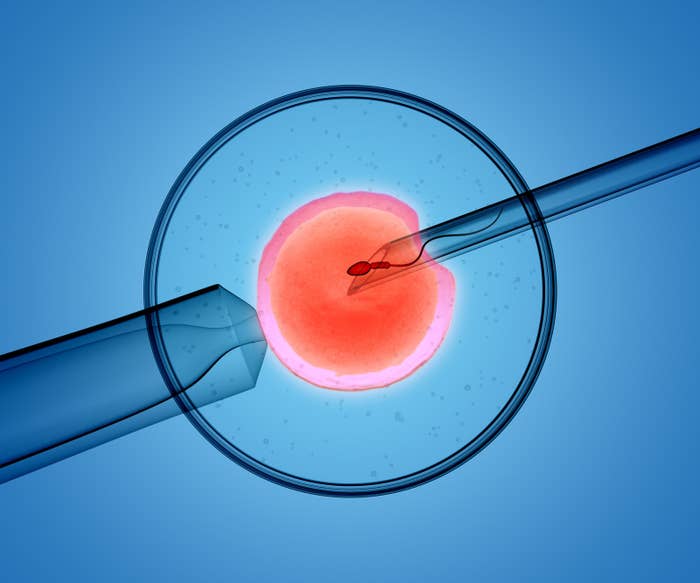
A London-based team of scientists have edited the genes of human embryos for the first time in Britain. It's the first time in the world that the technique has been used to help understand the role of genes in early human development.
The scientists behind it say that it could eventually help understand why some pregnancies fail, and could perhaps one day lead to ways of preventing those failures.
As well as giving insights into the role of a specific gene, the study – published in the journal Nature – also showed that there are important differences between how human embryos and mouse embryos develop. The team say that this shows experiments on human embryos will provide new understanding which would be unavailable if they were only to do research on mice.
The researchers, based at the Francis Crick Institute in north London, used a technique called CRISPR-Cas9 to remove a gene in very early embryos. CRISPR-Cas9 is a new and much-heralded technique, using a chemical process borrowed from bacteria, that allows scientists to remove specific lengths of DNA from cells.
The gene they removed makes a protein called OCT4. OCT4 is expressed very early in development – as early as the third day, when the embryo consists of just eight near-identical cells. By the seventh day, the embryo is a hollow ball of around 200 increasingly specialised cells, called a blastocyst. The study showed that OCT4 is vital in allowing the embryo to form this blastocyst and proceed into a healthy foetus.
Dr Kathy Niakan, who led the study, told a press briefing that understanding how OCT4 affects embryonic development is important for helping infertile couples have children. Only about 50% of cells form a blastocyst, she said. "Of the ones that do, only about 50% will implant, and we don't know why. Of those that do implant, about 50% don't make it to three months." So only about one in eight fertilised eggs make it past the third month of pregnancy. OCT4 clearly plays a key role.
The study also noted that the expression of OCT4 is different in mice to in humans, affecting the development of the embryo at an earlier stage. "That demonstrates the importance of [studying human embryos]", said Niakan. "Mouse models are fantastic, but sometimes to get the full picture you need to study these genes directly in humans."
In a comment given to the Science Media Centre, Dr Dusko Ilic, a reader in stem-cell science at King's College London, who was not involved in the study said: "One in every four couples has been affected by infertility and to address the issue. We have to understand the biology of the earliest stages of human development. [This study shows that] OCT4 plays somewhat different roles in human than in mouse preimplantation embryos.
"The study is another proof that the findings from experimental animal models cannot be always extrapolated to humans.”
All embryos used in research in the UK are "spare" embryos left over from IVF, which would otherwise be destroyed. "Patients are given an option to donate spare embryos to research, and we’re incredibly grateful to those who do," said Niakan. Under UK law, research can only be done until the 14th day after fertilisation, whereupon the embryos must be destroyed.
The House of Commons Science and Technology Committee is launching an inquiry into "genomic medicine" to establish the best and most ethical ways to use the new techniques as they become more mainstream.
